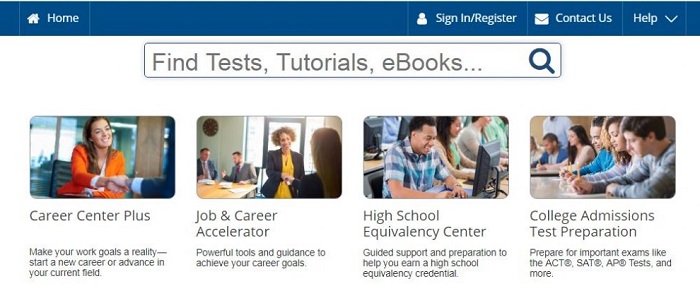Testing is a vital part of the educational process; verifying the mastery of skills needed to proceed. Undergraduates have typically taken many tests on the way to becoming or earning advance credit as a student, including the SAT, ACT, or CLEP tests. For those students who move beyond a Bachelor’s degree, there are other, more advanced tests required.
Those interested in specialized graduate study are generally acutely aware of the requirements and expectations of their desired field, and tailor their undergraduate experience to prepare them for it – often referred to colloquially by phrases such as being on a ‘pre-law’ or ‘pre-med’ or ‘pre-business’ track, although what that entails can be quite informal. For example, someone aspiring to be a lawyer has the freedom to major in a variety of fields, including philosophy, criminal justice, political science, or even history. Some programs, by contrast, are more comprehensive than others (such as most pre-med programs, which are likely to require coursework in biology, chemistry, or neuroscience, and favor the completion of undergraduate degrees in these fields).

A ‘pre-’ professional track, though, is not simply about coursework. An undergraduate student with aspirations in one of these fields should engage in volunteer activities, make professional contacts, be involved in a lower-level clinical experience (such as an internship), and perform personal research. If a college focuses on this sort of graduate study, it will often offer help to their students with the application process, as well. And additionally, these students can expect further testing to verify that they are prepared for and a good candidate to succeed at graduate education. There are a variety of tests, including the Graduate Record Examinations (GRE), Medical College Admission Test (MCAT), Law School Admission Test (LSAT), Graduate Management Admission Test (GMAT), and the Miller Analogies Test (MAT). A student is likely to take only one or two of these and not all of them (for example, a candidate for a Master’s degree in business would take the GMAT and possibly the GRE). IU East describes what tests are required for our own Master’s programs on the graduate study website; other colleges usually do so as well. For example, those interested in pursuing a Master of Science in Criminal Justice & Public Safety or Master of Arts in Mental Health Counseling at IU East will need to take the GRE.
The library offers numerous resources to support test takers. Broadly, these include study guides and practice tests, although some sources also offer flashcards or other resources. Ebooks are our most prolific resources.
To support the Graduate Record Examinations, we have titles like GRE Prep Course, GRE Math Prep Course, Nova’s GRE Prep Course, and GRE 4000: the 4000 Words Essential for the GRE.
For the Medical College Admission Test, there are books like MCAT Prep Course, The MCAT Chemistry Book, The MCAT Physics Book, and The MCAT Biology Book.
For the Law School Admission Test, there are CliffsTestPrep LSAT, LSAT for Dummies, Master the LSAT, and SmarTEST Prep: Guide to LSAT Logic Games.
For the Graduate Management Admission Test, there are GMAT for Dummies Online Practice Tests, GMAT Prep Course, Nova’s GMAT Math Bible, and Game Plan for GMAT Verbal: Your Proven Guidebook for Mastering GMAT Verbal in 20 Short Days.
For the Miller Analogies Test, there are MAT for Dummies and McGraw-Hill’s MAT Miller Analogies Test.

LearningExpress is a database exclusively dedicated to career prep and testing (both graduate and undergraduate), and includes practice exams and other materials for the GRE, MCAT, LSAT, GMAT and MAT. Creating an account is required (although this is free), and gives access to interactive tutorials, practice tests, ebooks, flashcards, standardized test preparation, and career development help.

Need any help finding resources on graduate level testing? Ask Us! Email iueref@iue.edu or simply click this button:


